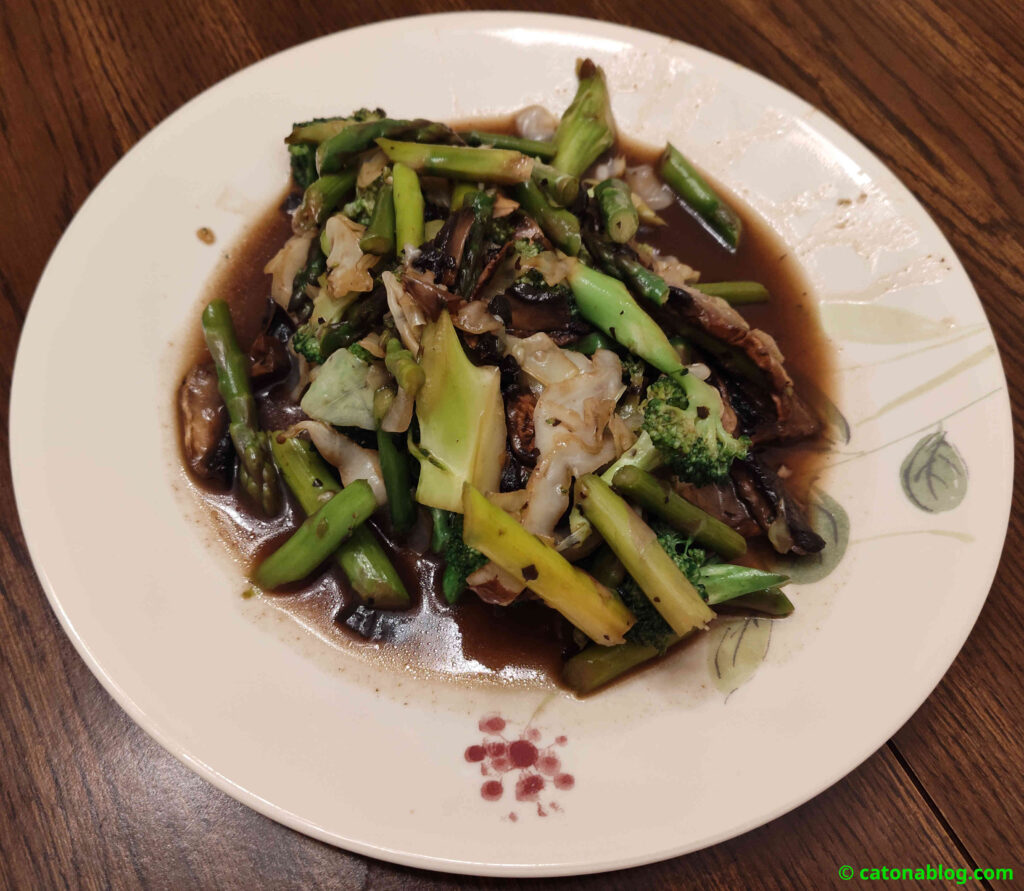Feb 27th, 2024 Tuesday Cloudy with record-breaking high temperature

A few weeks ago, my mother-in-law called us to ask for a “detailed” recipe of “that chicken rice soup” that we made for her last summer.
She was not feeling well back then, having lost weight and appetite for many things she used to love. Even when she managed to eat some, she threw them up a lot. According to the ancient wisdom, congee is the most nourishing (certainly the easiest to eat and digest), so I cooked a batch of chicken congee which she really liked. Before leaving, my husband and I sat together to write down the cooking instructions for her, so she could do it on her own. We tried to be super specific.
I guess that was still not good enough guidance. Oh well. I answered all her questions patiently and encouraged her to give it a try.
As far as I know, she still has not made an attempt.
“Maybe this dish sounds too hard for her. She is not good at cooking.” my husband commented.
Hmm, really? I wonder, what makes one good at cooking? Is cooking a natural talent that some people are born with?
Honestly, I think there are two factors in play, and neither is innate.
One is some basic understanding of physics and chemistry – not necessarily a major or degree, and nothing complicated, but just an intuition of what procedure makes sense, and what would likely happen if I do XYZ. More seasoning would lead to a stronger flavor; more water in a soup would result in a less dense texture; more cooking time would bring about softer food (except seafood); and so on. These are usually called “common sense”, that humans have grasped in the course of interacting with the natural environment. Many children are able to figure them out, even if no one explicitly teaches them.
The other factor might be the willingness to take risks, to play trial-and-error, and to learn from past experiences.
Cooking as a practice definitely dates back way earlier than recipes, and written records from ancient civilizations were often not as quantified and accurate as their modern counterparts. Yet people cooked, and passed on the knowledge of cooking, generation after generation, and many tasty inventions from thousands of years ago continued to nurture us. Of course, having a guideline reduces the chance of random mistakes, but we do not NEED to follow it religiously. After all, the priority of home chefs is to produce something that feeds the family, happily if possible. If the cooking experiment did not yield a successful result, and the dumplings becomes meat balls and noodles, who cares? My dad always says that they all mix up in your stomach anyway 😛
For dinner tonight, I made an improvised vegetable stir-fry to use up some sauce from a braised dish, which had been stewed on low heat for three hours and I hate to waste it. Many of the ingredients are similar to what I might add to a stir-fry anyway (e.g. soy sauce, sugar, vinegar), and the meaty flavor from the braised dish would add some savoriness to the vegetables. I hope the outcome would be edible, at least. As for my husband, I am sure he would devour it in five minutes and smile with great satisfaction.
And that is all that matters 🙂